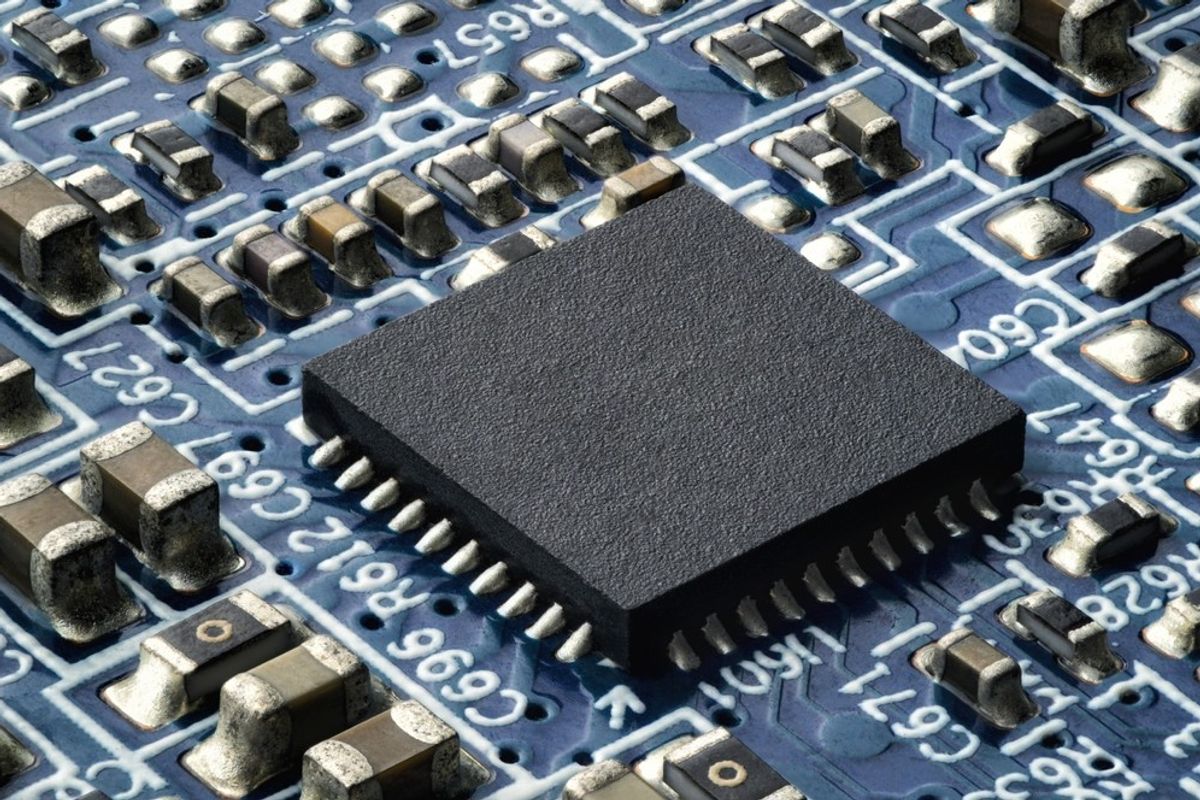Biden’s new tech curbs on China
The U.S. plans to tighten controls on semiconductor exports to China, focusing on key companies while avoiding overly harsh measures to protect American businesses.
Dubai Desk
The Dubai Desk reports on major developments across the UAE, covering news, culture, business, and social trends shaping the region.

Asian and European chip stocks surged as the proposed rules appear less severe than initially feared, easing market concerns.
Shutterstock
The Biden administration is considering imposing additional restrictions on the export of semiconductor manufacturing equipment and AI-driven memory chips to China, aiming to intensify its efforts to curb Beijing's technological advancements.
However, it plans to avoid implementing some of the stricter measures previously under consideration, according to Bloomberg.
The new restrictions could be announced as early as next week, though the timing and details remain fluid. Bloomberg's sources indicated that the rules are still subject to change and will only be finalized once officially published.
These measures follow months of internal deliberations among U.S. officials, negotiations with allies in Japan and the Netherlands, and intense lobbying from American chip equipment manufacturers. These companies have warned that overly stringent measures could cause severe damage to their business operations.
Bloomberg revealed that the new proposal introduces notable changes compared to earlier drafts, particularly regarding Chinese companies to be added to the U.S. "entity list" for trade restrictions.
Previously, the U.S. had considered sanctioning six suppliers to Huawei Technologies, a cornerstone of China's tech sector. While officials are aware of at least six additional suppliers, the current plan will add only a limited number of these to the list. Notably, ChangXin Memory Technologies, which develops advanced AI-powered memory chips, is expected to be exempt from the restrictions.
Shares of chipmakers in Asia and Europe surged following the news. ASML Holding NV’s stock jumped 5.5%, leading gains among chip equipment makers like BE Semiconductor Industries NV and Aixtron SE. In Japan, Tokyo Electron shares soared 7%, while Screen Holdings and Kokusai Electric rose 6% and 13%, respectively.
Li Ping Huang, chief technology analyst at Huatai Securities, told Bloomberg that the proposed restrictions seem "less severe than the worst-case scenario markets had feared."
The rules will reportedly target specific chipmakers affiliated with Semiconductor Manufacturing International Corporation (SMIC), a key partner of Huawei in chip production. Additionally, over 100 entities are expected to be added to the "entity list," focusing on Chinese semiconductor equipment manufacturers rather than chip production facilities, Bloomberg wrote.
The move marks a partial victory for U.S. chip equipment makers like Lam Research, Applied Materials, and KLA, which have opposed unilateral restrictions on major Chinese companies, including Huawei's suppliers.
These companies argued that such measures would put them at a disadvantage compared to international competitors like Japan's Tokyo Electron and the Netherlands' ASML, whose governments have not implemented equivalent restrictions.
Japan and the Netherlands have imposed limited restrictions on China since 2022, aligning partially with U.S. measures. However, both countries have resisted recent U.S. calls for stricter controls.
The revised U.S. rules include restrictions on additional categories of equipment but exempt allies such as Japan and the Netherlands from implementing the Foreign Direct Product Rule (FDPR). However, it remains uncertain whether these allies will impose additional restrictions on Chinese firms targeted by Washington.
The proposed measures also address high-bandwidth memory chips, critical for AI applications. Companies like Samsung Electronics, SK Hynix, and U.S.-based Micron Technology are expected to be impacted by these changes.










Comments
See what people are discussing